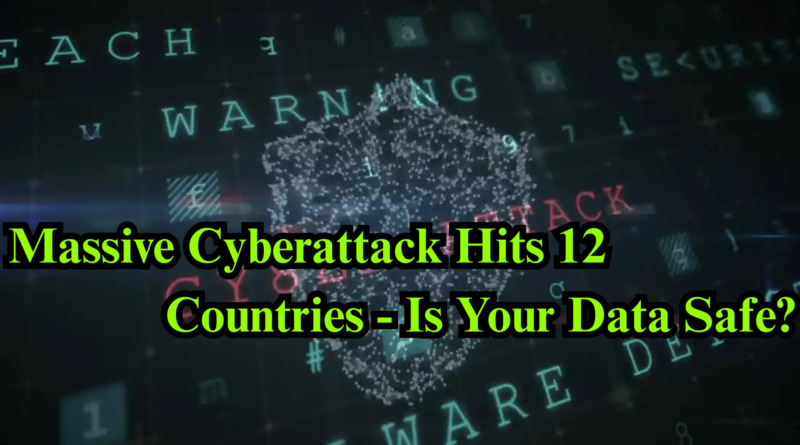Massive Cyberattack Hits 12 Countries – Is Your Data Safe?
In a shocking development, a coordinated cyberattack has targeted critical infrastructure across 12 countries, compromising sensitive government data, banking systems, and private user information. The breach, described by cybersecurity experts as one of the most sophisticated in recent years, has raised urgent questions about global digital security and the vulnerability of even the most advanced systems.
The cyberattack reportedly began with a wave of phishing emails that deployed advanced malware into the networks of major institutions, including national power grids, hospitals, and banking systems. Countries affected include the United States, Germany, India, Australia, Japan, the UK, and several others across Europe and Asia. In many regions, internet speeds slowed dramatically, and some banking services were briefly suspended to prevent further damage.
Initial investigations suggest the involvement of a state-backed hacker group using a new strain of ransomware capable of bypassing traditional firewalls and AI-based threat detectors. Known only as “Shadow Dagger,” the group is believed to have exploited a zero-day vulnerability that had not been patched by software providers. Governments are now working with private cybersecurity firms to track down the origin of the attack.
In India, the attack caused temporary disruptions in stock market trading platforms and digital payment services, including UPI and several mobile wallets. While authorities have assured that no customer funds have been lost, they have urged users to change their passwords and enable two-factor authentication on all financial apps. The Indian Computer Emergency Response Team (CERT-In) has launched a full probe and is coordinating with international agencies.
Meanwhile, in the US and UK, several hospitals reported temporary failures in their digital health records systems. Although patient care was not severely impacted, officials say the incident underscores the need to strengthen cybersecurity in the healthcare sector. Experts warn that the growing reliance on cloud storage and IoT devices has created new vulnerabilities that must be addressed with urgency.
Global leaders are calling for a cyber defense coalition to share threat intelligence in real time and create standardized protocols for response and prevention. The United Nations is also considering a proposal to treat cyberattacks on civilian infrastructure as violations of international law, potentially labeling them as “acts of digital war.”
For individuals, cybersecurity professionals recommend immediate steps such as updating antivirus software, avoiding suspicious links and downloads, using strong and unique passwords, and activating alerts for unusual activity on bank accounts and email. With so much of daily life happening online, personal vigilance has become a critical layer of defense.
This attack is a wake-up call not only for governments and corporations but also for regular internet users. As cyber threats grow more advanced and unpredictable, the question remains: Are we truly prepared for a digital war and is your data really safe?




